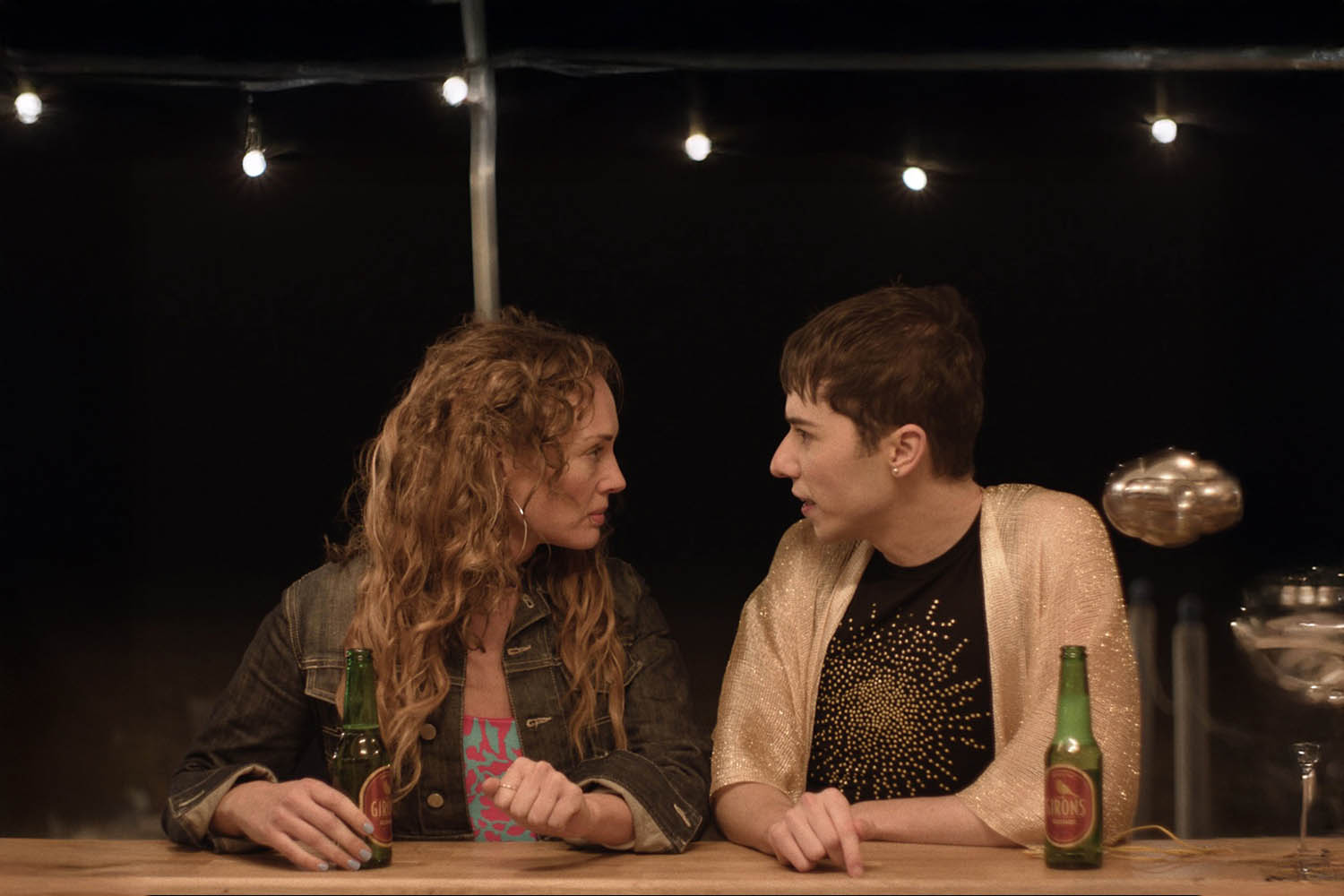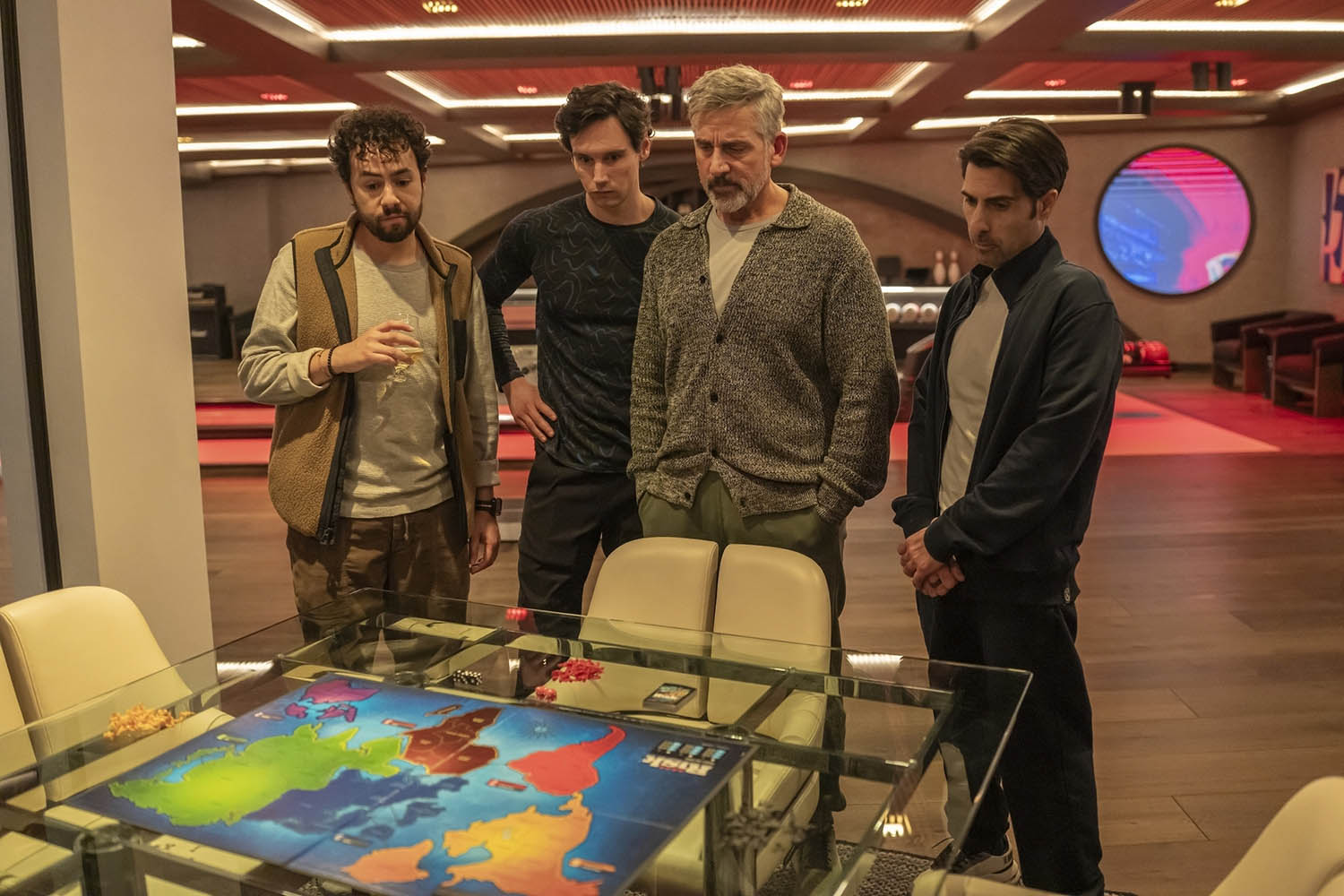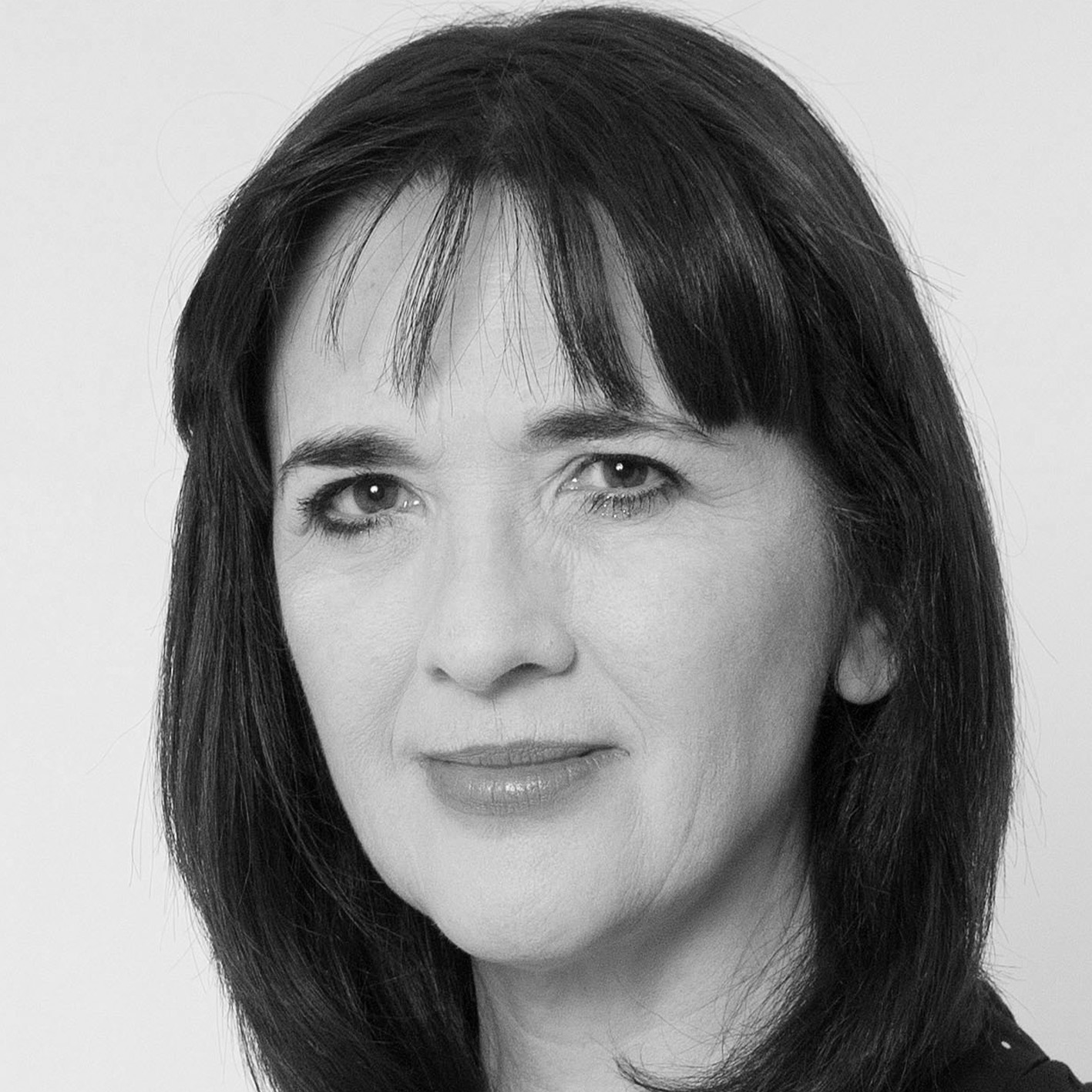Watching Jesse Armstrong’s Sky Atlantic black comedy Mountainhead, his first project since Succession, I start feeling nostalgic for old-school tech nerds. Remember them? They were sweet and socially hopeless, slouching around in Uniqlo sweatpants, blinking bashfully as they delivered mildly monotonous Ted Talks about the collision between technology and philanthropy. Even if I’ve made that bit up, tech bro is a different gig altogether. In this era of the Barnum billionaire, revolutionary software and nosebleed wealth aren’t enough – they also have to be evil and entertaining, with an entitlement so shameless it could burn up the planet.
This is the world of Mountainhead, a looming alpine citadel owned by meditation app inventor Souper (Jason Schwartzman) and accessed via private planes and purring SUVs by his three guests and fellow “Brewsters” fraternity for a poker get-together. While it’s supposed to be about kicking back (“no deals, no meals, no high heels”), hidden agendas hum in the filtered air.
Souper (short for “soup kitchen” levels of wealth) is merely a centimillionaire; the others are billionaires. The richest, Venis (Cory Michael Smith), is an Elon Musk-alike owner of social media site Traam. Tech elder Randall (“Dark Money Gandalf”), played by Steve Carell, has received a cancer prognosis his Superman complex can’t accept (“All the things we can do and we can’t fix one tiny piece of gristle inside me?”). Jeff (Ramy Youssef) deals in AI “guardrails” and gets the funniest lines, smirking at the chilly ostentation of Mountainhead: “You only get to build the paedophile lair once, right?”
When Traam’s dodgy AI sparks a global crisis (deepfakes leading to widespread carnage and sociopolitical collapse), it turns into a jargon-heavy tech bro pissing contest with real-world consequences. Who can sort out the Middle East? Who wants to rule Argentina? Will Jeff let Venis use his AI-corrective tech to exonerate Traam? The Brewsters are revealed as self-serving and obnoxious to a bro, and that’s putting it mildly: if redeeming qualities were oxygen, everyone in Mountainhead would suffocate in the first act.
The wealth satire genre is not as fresh as it was; why hate-watch a drama about the super-rich when you can hate-watch Musk himself? However, it’s here that Mountainhead is most assured: observing braggarts crushing civilisations like beer cans, tossing around consequences like peanuts thrown into mouths (“Are we Bolsheviks of a new techno world order?”).
It’s towards the end of the 109 minutes that it derails into near-farcical territory, becoming both overdone and undercooked, perhaps betraying the fast-tracked origins. Armstrong created, wrote and directed it himself, and all within a few months (with Succession personnel popping by intermittently). Nor is this Armstrong’s habitual medium – the series, where characterisation and motive have time and space to bud, flower and wither.
Though I initially wonder if it’s missing a strong female character – a Succession Shiv type – on the whole, I enjoy the relentless blowhard manosphere of Mountainhead. At its best, it delivers robust dissections of big ego masquerading as big humanity, of the philosophy-washing (“creative destruction”) of big-bucks greed and immorality. Add Armstrong’s signature high thread count of one-liners and Mountainhead emerges as a flawed but intriguing marker for our tech bro times.
On BBC One, Paris Lees and Georgia Christou’s What It Feels Like for a Girl is based on transgender author and journalist Lees’s 2021 memoir of the same name. In eight parts, it tells the story of Lees’s working-class adolescence in Hucknall, Nottinghamshire, when she was navigating life as a boy called Byron, whom she refers to now as “they”.

Laura Haddock and Ellis Howard in What It Feels Like for a Girl
We meet Byron (Ellis Howard) as a teen at the turn of the millennium: clever, gobby, skint, camp, lethally bored and viciously bullied, including by their angry, despairing father, played by Michael Socha: “Stop walking like a fucking fairy!” While Byron’s semi-estranged mum, Lisa (Laura Haddock), is a reformed wild child, their true spiritual touchstone is their grandma Mommar Joe (Hannah Walters). It isn’t long before Byron is experimenting with drugs and selling sex, everywhere from public toilets to dogging sites (today, Byron would be considered heavily groomed). A painful crush on another rent boy (Calam Lynch) leads them into a club, where they meet a life-changing group of friends: not just gay people, but trans people such as Sasha (Hannah Jones) and Lady Die (Laquarn Lewis).
It is akin to a mashup of It’s a Sin, Pose and Trainspotting, and there isn’t a dud performance
It is akin to a mashup of It’s a Sin, Pose and Trainspotting, and there isn’t a dud performance
Byron’s childhood gender dysphoria – telling an ice-cream man: “I’m not a lad” – flickers in and out of focus, until it finally manifests itself in dresses and wigs. But there are myriad other themes: the outlier revelation of found family, the cheerful wildness of a wasted youth, and the easy slide (spoiler alert) from the hedonistic underbelly to criminality (there’s a harrowing sequence showing a cowed Byron arriving in prison).
Newsletters
Choose the newsletters you want to receive
View more
For information about how The Observer protects your data, read our Privacy Policy
The series is probably two episodes too long, but it is still extremely strong, witty, layered, uncompromising and struttingly brazen about drugs and sex. The drama neatly captures both the early-2000s era, and the warmth and bluntness of the Midlands region. At times, it is akin to a mashup of It’s a Sin, Pose and Trainspotting, and there isn’t a dud performance to be found. In a demanding lead role, Howard is superb, inhabiting Byron/Paris with preternatural ease and an entire confetti cannon of charisma.
Over on Apple TV+, there’s Jason Keller’s new 10-part US golf comedy Stick. Owen Wilson plays Pryce Cahill, AKA Stick, a washed-up former golfing star, broken by terrible tragedy. Separated from his wife (Judy Greer), reduced to menial work and hustling, he talent-spots Latino golf prodigy Santi (Peter Dager).

Owen Wilson and Peter Dager in Stick
There ensues a Winnebago road trip around golf tournaments, with Stick, Santi, the latter’s mother, Elena (Mariana Treviño), Stick’s grumpy friend Mitts (Marc Maron) and a gender-fluid character called Zero (Lilli Kay). Cue folksy life lessons and learning moments, but Stick is also about misfits, underdogs and the ache of grief.
It lets itself down with too many leaden generation-gap jokes, but benefits hugely from Wilson’s easy Shaggy from Scooby-Doo charm (Wilson is a pro at lifting comedy out of schmaltzy quagmires). It could be said to echo football comedy Ted Lasso, but I think it’s better: funnier, spikier, less relentlessly saccharine.
Photographs courtesy of BBC/Hera/Enda Bowe; AP

